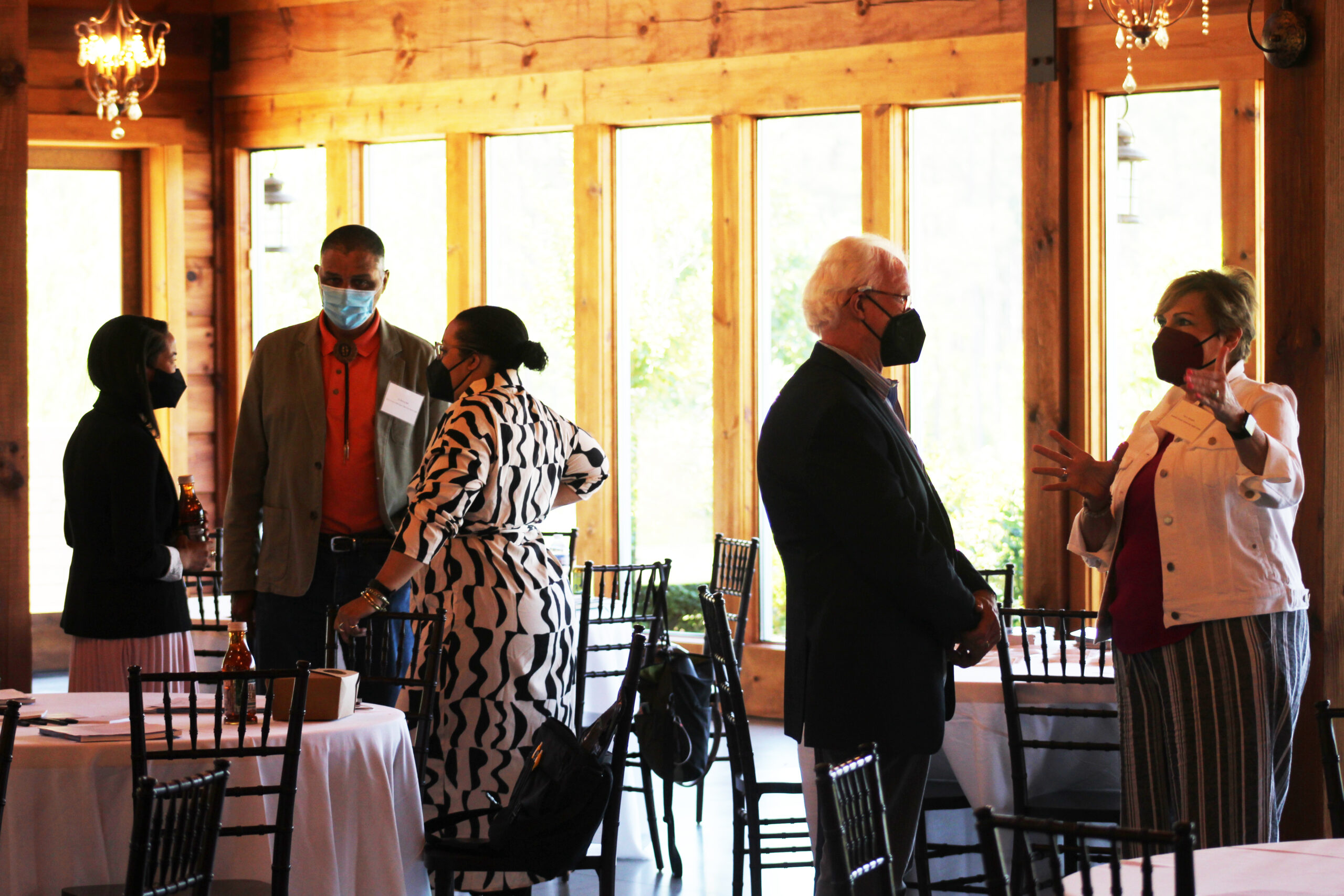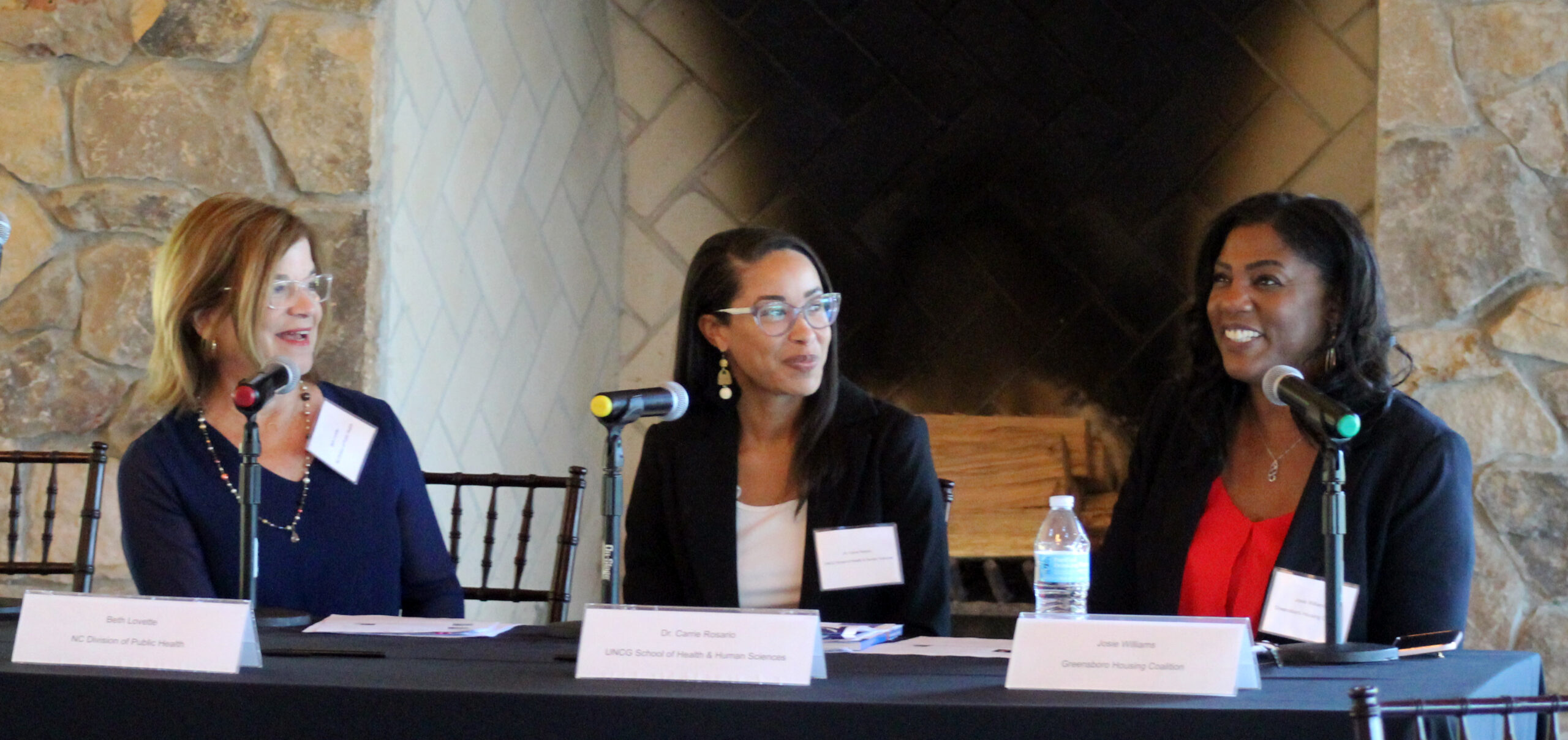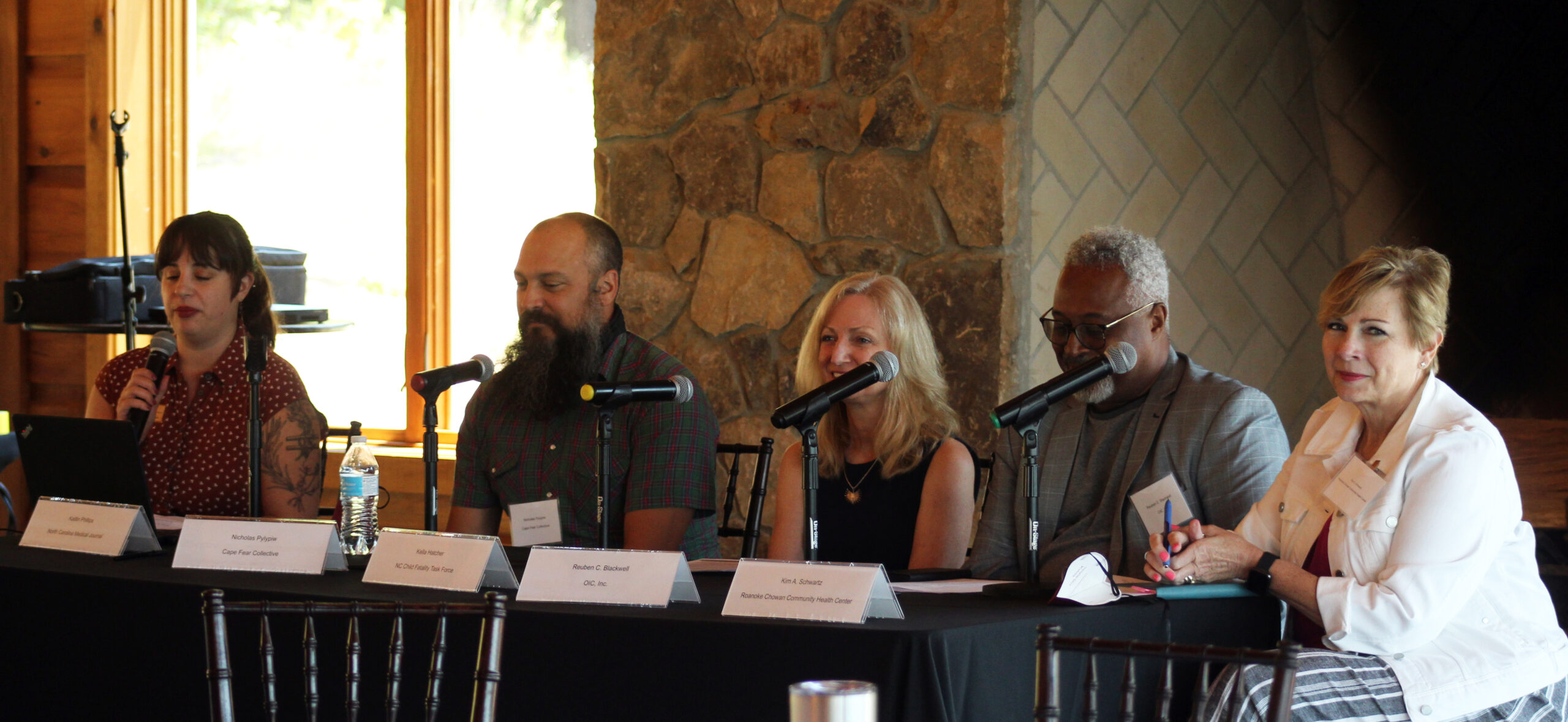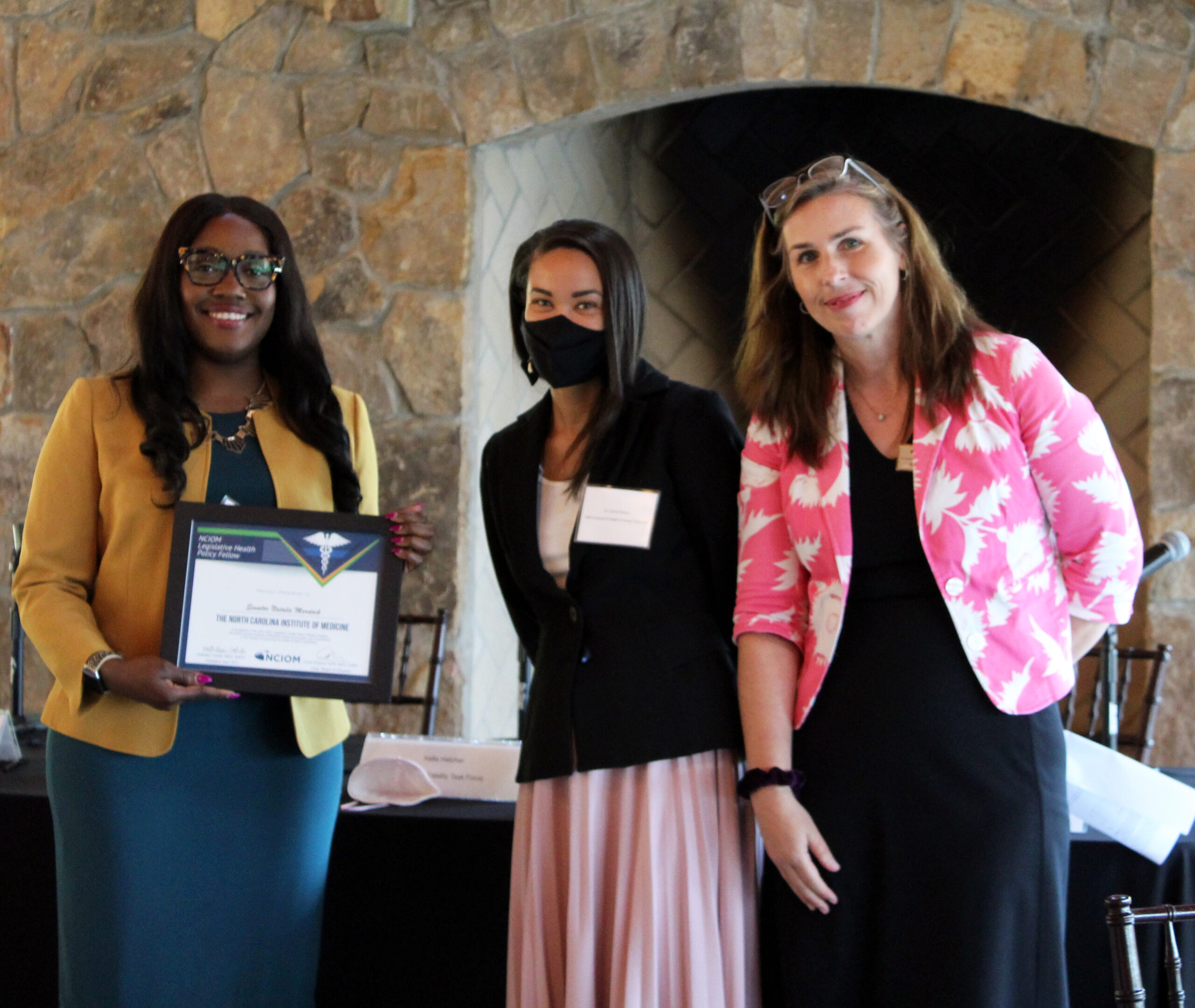


On June 6, a diverse group of North Carolina decision-makers gathered in Raleigh for networking with colleagues and discussion about improving the health of our state.
Representatives from the North Carolina General Assembly, the North Carolina Department of Health and Human Services Division of Public Health,
community health, nonprofits, advocacy organizations, and schools of health sciences convened for a networking lunch and two insightful panels. Moderated by Beth Lovette of NCDHHS Division of Public Health, Panel 1 featured two recent NCMJ guest editors who focused on the data and trends about non-medical drivers of health identified by the Healthy North Carolina 2030 process and report.

Josie Williams, Executive Director at the Greensboro Housing Coalition, talked about how stable and secure housing is crucial for health in North Carolina. “Everything is intricately connected, and we must address from a root cause perspective,” Williams said. (See her NCMJ issue brief here.)
Dr. Carrie Rosario, Assistant Professor in the School of Health & Human Sciences at UNC-Greensboro and Board Chair of the NCIOM, noted the importance of the upcoming health behaviors issue of the NCMJ, which she is guest-editing. “Health behavior has to be contextualized, and we have to work to ensure the conditions people need to live healthy lives,” she said.
Panel 2, moderated by NCMJ Managing Editor Kaitlin Ugolik Phillips, featured recent authors discussing the policies, programs, and levers for change that may help our state reach our Healthy NC 2030 goals.

Kella Hatcher, Director of North Carolina’s Child Fatality Task Force, shared the little-known fact that children commonly die or are injured by firearms in our state, and that more and better data will help bring this information to light. Reuben Blackwell, CEO of OIC in Rocky Mount, addressed how communities adapt to poor public policy that does not address their needs. “It’s more efficient and transformative to have collaboration at all levels – across state agencies, institutions. In order to get something different, we have to do something different,” Blackwell said. (Read his NCMJ article here.)
Nicholas Pylypiw, Director of Data Science at Cape Fear Collective, explained why local public health and partners must have access to world-class data science to better serve their communities (read his NCMJ article here). Kim Schwartz, CEO of Roanoke Chowan Community Health Center, said additional funding needs to go where the additional burden is – especially in Eastern North Carolina (read her latest NCMJ article here).
During the final session of the event, recent graduates of the NCIOM’s Legislative Health Policy Fellows program received certificates in recognition of their commitment to learning about the health issues facing North Carolina.
2021-22 Legislative Health Policy Fellows:
